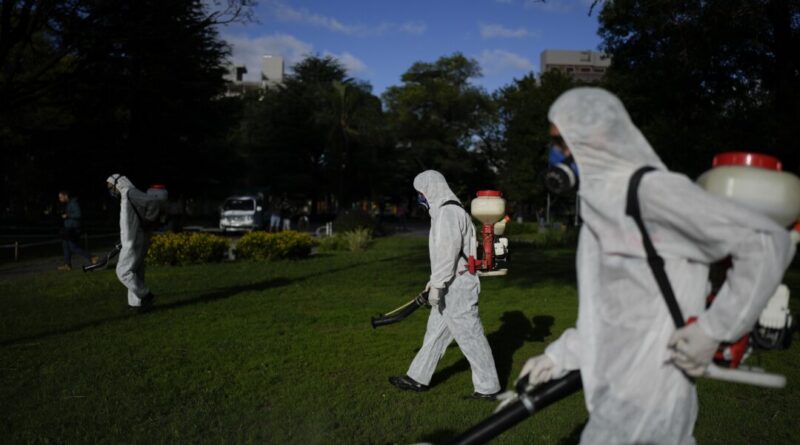Increased Dengue Virus Risk Alert Issued by CDC in United States
The CDC reports that there is a surge in dengue fever cases across Latin America.
A health alert was issued by the U.S. Centers for Disease Control and Prevention (CDC) on Tuesday, urging doctors to stay vigilant as dengue fever cases continue to spread globally due to mosquitoes.
Authorities mentioned that the virus has been progressively increasing worldwide, with some countries setting new records for dengue cases this year. The U.N. World Health Organization also declared a dengue emergency in December.
In 2024, there were 2,241 cases reported across 50 states and 1,498 cases in Puerto Rico. Puerto Rico declared a dengue emergency earlier this year due to a surge in cases.
Last year, a total of 3,036 dengue cases were reported in the United States, Puerto Rico, and other territories, according to the CDC. The advisory also stated that nearly 10 million dengue cases have been reported in Latin America, double the number reported in 2023.
Currently, there is no widely available treatment for dengue infections. Vaccine development has been challenging due to the existence of four dengue types that can infect humans.
In 2021, U.S. officials recommended a three-dose vaccine from Sanofi Pasteur to protect against all four dengue types. The vaccine is only recommended for children aged 9 to 16 with prior laboratory evidence of dengue infection and residing in high-risk areas like Puerto Rico.
The CDC emphasized the importance of recognizing the critical phase of dengue when the fever decreases and lasts for 24 to 48 hours. Close monitoring and appropriate intravenous fluid management are essential during this phase to prevent deterioration.
To minimize dengue risk, the public is advised to use mosquito repellents, wear protective clothing, maintain indoor conditions, and eliminate standing water where mosquitoes breed during travel to dengue-prone areas.
Those planning international travel to areas with frequent dengue outbreaks should protect themselves from mosquito bites before and after the trip.
The CDC will expand laboratory testing to diagnose suspected cases and provide more information to the public about dengue prevention.
Symptoms and Signs
Dengue fever, also known as “breakbone fever,” is caused by a virus transmitted through the bite of an infected Aedes mosquito.
Symptoms may not manifest in some people, but when they do, they can mimic other illnesses like the flu. Symptoms typically appear four to 10 days after a mosquito bite and include high fever and various other symptoms.
These symptoms may include muscle or joint pain, nausea, eye pain, swollen glands, and a rash, among others. Severe cases can lead to life-threatening conditions like dengue hemorrhagic fever or dengue shock syndrome.
Complications from severe dengue can result in organ damage, severe bleeding, and respiratory issues. Treatment mainly focuses on managing pain symptoms with medications like acetaminophen.



